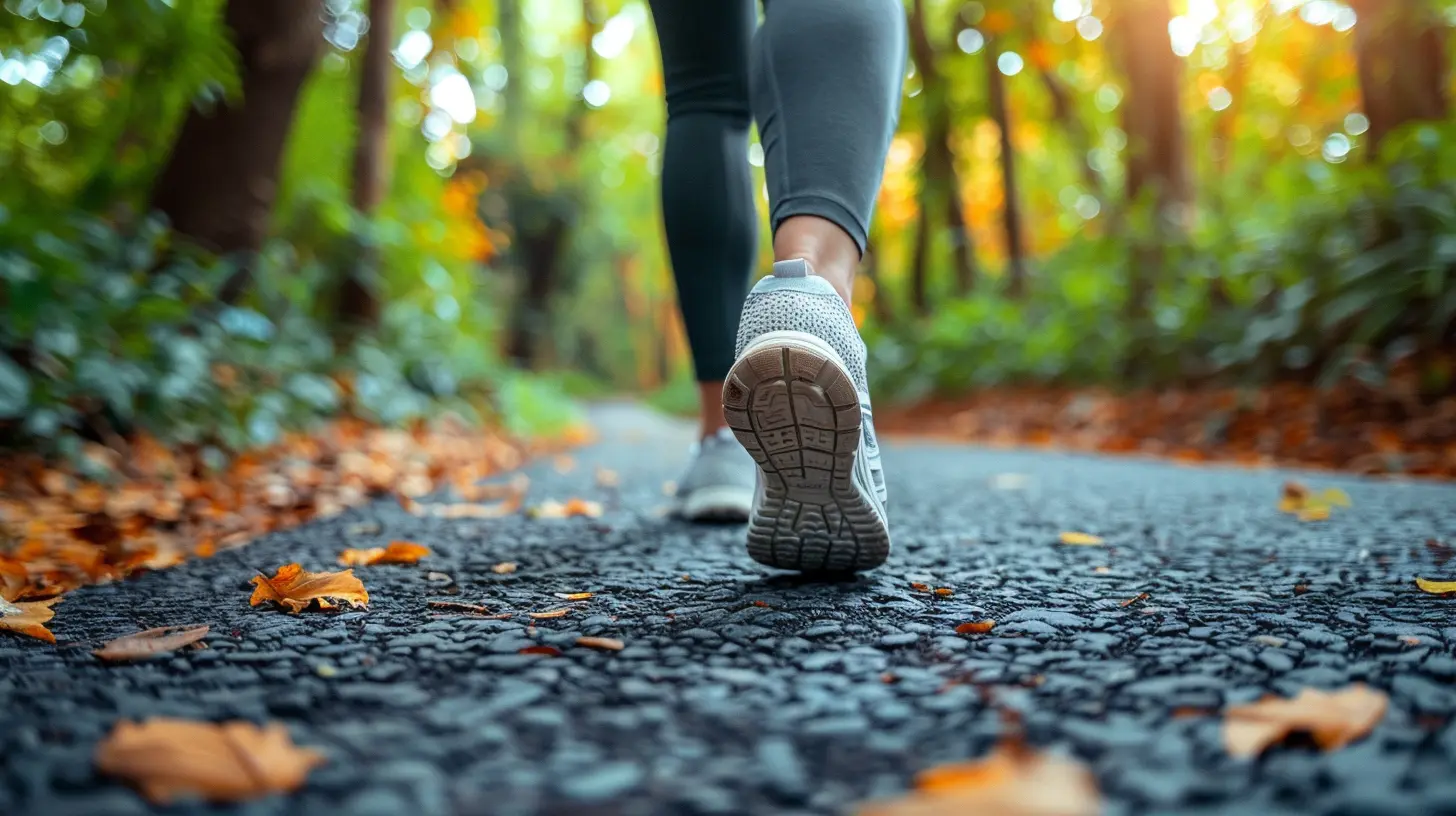The Connection Between Exercise and a Healthy Immune System
20 September 2025
If you’ve ever gone for a jog and felt like a superhero afterward, there’s actually some science behind that. Exercise doesn’t just help you fit into those skinny jeans or boost your energy levels—it plays a vital role in keeping your immune system strong and resilient. But how exactly does movement affect your body’s defense system? Let’s dig into the nitty-gritty of how sweating it out can actually keep the sniffles at bay.

Why Should We Care About Our Immune System Anyway?
Think of your immune system as your body’s personal security team. It’s working 24/7 to detect and destroy any invaders—like bacteria, viruses, or even rogue cells that could cause harm. When it's functioning properly, you barely notice it. But when it's not? Well… hello cold, flu, or worse.So keeping your immune system in tip-top shape isn’t just important—it’s essential for your health and longevity. And one surprisingly effective way to do that is through regular physical activity.

Exercise and Immunity: What's the Link?
At first glance, you wouldn’t immediately connect your morning stretch or an afternoon walk with immune health, right? But your body is one big interconnected system. When you get moving, magical things happen beneath the surface.1. Physical Activity Enhances Circulation
When you exercise, your blood flow improves. That not only helps you feel more energized but also enables your immune cells—like white blood cells and lymphocytes—to travel more freely throughout your body. Imagine it like clearing highway traffic so your immune “soldiers” can get to problem areas faster.Improved circulation also means more oxygen and nutrients reach your tissues. And guess what? Well-fed organs function better—including the ones involved in immunity.
2. Exercise Boosts the Production of Immune Cells
Certain types of physical activity actually stimulate the production of important immune cells. Moderate, consistent exercise encourages the release of cytokines, proteins that help orchestrate your immune response.Your body also increases the creation and circulation of lymph, a clear fluid that carries vital infection-fighting white blood cells through the lymphatic system. More lymph = more soldiers on the battlefield.
3. Regular Movement Reduces Inflammation
Chronic inflammation is like a fire that won’t go out—and it can seriously damage your immune system over time. It’s linked to everything from heart disease to autoimmune disorders. Exercise releases anti-inflammatory cytokines and helps regulate immune function to keep everything in balance.4. It Helps Manage Stress (Which Hurts Immunity)
Let’s be honest, stress isn’t just a buzzkill—it’s a health killer. When you're constantly stressed, your body releases cortisol, a hormone that suppresses immune function.Here’s where exercise shines again. It triggers endorphins—a.k.a. feel-good hormones—and helps lower cortisol levels. That’s why a good sweat session can feel like a therapy session. You kill two birds with one stone: better mood and stronger immunity.
5. Exercise Supports Better Sleep
Poor sleep messes with everything, including your immune system. Your body does a lot of its repair work while you snooze, including boosting immune cell production.Exercise helps regulate your sleep-wake cycle, making it easier to fall asleep and stay asleep. Just don’t go too hard too close to bedtime—give your body a couple hours to wind down.

But Can Too Much Exercise Hurt Your Immune System?
Ah, here’s the twist. While moderate, consistent activity is fantastic for your immune system, overtraining can have the opposite effect.Athletes who push their bodies to the extreme without proper recovery actually experience a dip in immunity. This is called the “open window” theory—a temporary period post-intense exercise where you’re more susceptible to getting sick.
So yes, you can have too much of a good thing. Balance is key. Shoot for 150 minutes of moderate-intensity exercise or 75 minutes of high-intensity exercise each week. Listen to your body. Rest is not a sign of weakness—it’s part of the plan.

Which Types of Exercise Are Best for Immune Health?
Spoiler: It’s not just about lifting weights or running marathons. A variety of activities can benefit your immune system. The goal? Keep moving in ways you enjoy. Here are a few top picks:1. Brisk Walking
It’s simple, low-impact, and easy to fit into your day. A 30-minute walk boosts circulation and helps de-stress your mind. Bonus: sunshine = vitamin D = immune boost!2. Yoga and Stretching
Don’t underestimate the power of a good stretch. Yoga calms the nervous system, eases stress, and enhances lymphatic drainage. Think of it as immune therapy for the soul and body.3. Strength Training
Building muscle not only boosts your metabolism, but it also helps regulate hormones and inflammation. Use light weights or resistance bands at home if the gym isn’t your vibe.4. Dancing
Yes, dancing counts! Whether it’s a Zumba class or a spontaneous living-room jam, dancing gets your heart pumping and your spirits high. And that’s great for your immunity.5. Cycling or Swimming
Low-impact but highly effective, both are great cardio options that work large muscle groups without stressing your joints. Plus, they’re fun—remember fun?Immune Health Is More Than Just Exercise
Okay, so you’re exercising regularly. That’s a huge win. But let’s not forget—exercise is only one piece of the immune-health puzzle. Here are a few other habits that play well with your workout routine:- Eat a balanced diet: Include lots of fruits, veggies, lean proteins, whole grains, and healthy fats.
- Stay hydrated: Water helps flush out toxins and keeps your organs, including your immune system, working efficiently.
- Limit alcohol and processed sugar: These can impair immune function when consumed in excess.
- Get good sleep: Aim for 7 to 9 hours each night.
- Practice mindfulness: Meditation, deep breathing, or journaling can lower stress levels and protect your immune health.
Real Talk: It’s About Lifestyle, Not Perfection
Let’s be real for a minute. Building a healthy immune system isn’t about obsessing over the gym or counting every step. It's about creating a lifestyle that supports your body’s natural defense systems. Some days you’ll be full of energy and ready to crush a workout. Other days, a gentle stretch will be more than enough.That’s okay.
Your immune system thrives on consistency, not intensity. So whether you’re gardening, walking your dog, doing yoga, or cycling with friends—just move your body in ways that feel good. Over time, those little movements add up to a massive impact on your overall health.
How to Start (and Stick With) an Immune-Boosting Exercise Routine
Not sure where to start? Don’t worry—here’s a simple roadmap:1. Start small – Aim for just 10–15 minutes of movement a day. It could be walking, stretching, or dancing in your kitchen.
2. Make it fun – If you enjoy it, you’re more likely to stick with it. Try new classes, go outside, or listen to music while you move.
3. Mix it up – A combo of cardio, strength, and flexibility exercises offers the best results.
4. Listen to your body – Rest when you need to. Recovery is just as important as the workout.
5. Set realistic goals – Forget perfection. Focus on progress and building lasting habits.
Final Thoughts: Move Your Body, Strengthen Your Shield
Look, there’s no magic pill for perfect health. But if you’re looking for one of the most powerful (and free) tools to boost your immune system? It's movement. Regular, joyful, moderate exercise can transform your well-being from the inside out.Not only will you feel better, sleep better, and stress less, but your immune system will thank you by staying strong and ready to protect you from whatever life throws your way.
So the next time you lace up your sneakers, think of it as charging up your body’s invisible shield. Because every move you make isn’t just for your muscles or mood—it’s for your immunity, too.
all images in this post were generated using AI tools
Category:
ExerciseAuthor:

Sophia Wyatt
Discussion
rate this article
1 comments
Nicholas McFarlin
Exercise is not merely a means to physical fitness; it is a profound act of self-care that invigorates the immune system. By engaging in regular activity, we cultivate resilience within our bodies, fostering a dynamic interplay between movement and immunity that ultimately enhances our overall well-being and vitality.
September 30, 2025 at 4:23 AM

Sophia Wyatt
Absolutely! Exercise is indeed a vital component of self-care that not only boosts physical fitness but also strengthens our immune system, promoting overall well-being. Thank you for your insightful comment!


